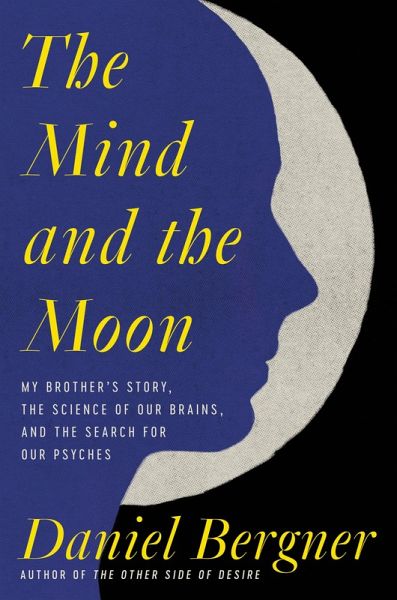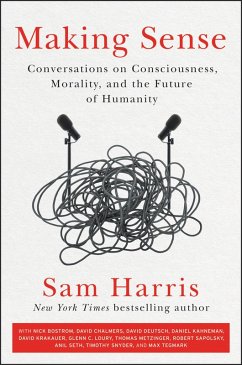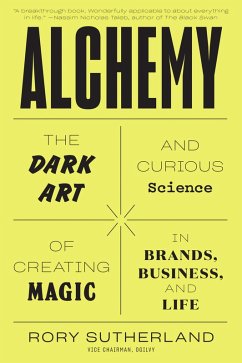
The Mind and the Moon (eBook, ePUB)
My Brother's Story, the Science of Our Brains, and the Search for Our Psyches
Versandkostenfrei!
Sofort per Download lieferbar
10,99 €
inkl. MwSt.
Weitere Ausgaben:

PAYBACK Punkte
0 °P sammeln!
A profound and powerful work of essential reporting." The New York Times Book ReviewAn importantand intimateinterrogation of how we treat mental illness and how we understand ourselvesIn the early 1960s, JFK declared that science would take us to the moon. He also declared that science would make the remote reaches of the mind accessible and cure psychiatric illness with breakthrough medications. We were walking on the moon within the decade. But today, psychiatric cures continue to elude usas does the mind itself. Why is it that we still don't understand how the mind works? What is the differ...
A profound and powerful work of essential reporting." The New York Times Book Review
An importantand intimateinterrogation of how we treat mental illness and how we understand ourselves
In the early 1960s, JFK declared that science would take us to the moon. He also declared that science would make the remote reaches of the mind accessible and cure psychiatric illness with breakthrough medications. We were walking on the moon within the decade. But today, psychiatric cures continue to elude usas does the mind itself. Why is it that we still don't understand how the mind works? What is the difference between the mind and the brain? And given all that we still don't know, how can we make insightful, transformative choices about our psychiatric conditions?
When Daniel Bergner's younger brother was diagnosed as bipolar and put on a locked ward in the 1980s, psychiatry seemed to have achieved what JFK promised: a revolution of chemical solutions to treat mental illness. Yet as Bergner's brother was deemed a dire risk for suicide and he and his family were told his disorder would be lifelong, he found himself taking heavy doses of medications with devastating side effects.
Now, in recounting his brother's journey alongside the gripping, illuminating stories of Caroline, who is beset by the hallucinations of psychosis, and David, who is overtaken by depression, Bergner examines the evolution of how we treat our psyches. He reveals how the pharmaceutical industry has perpetuated our biological view of the mind and our drug-based assumptions about treatmentdespite the shocking price paid by many patients and the problematic evidence of drug efficacy. And he takes us into the pioneering labs of today's preeminent neuroscientists, sharing their remarkably candid reflections and fascinating new theories of treatment.
The Mind and the Moon raises profound questions about how we understand ourselves and the essential human divide between our brains and our minds. This is a book of thought-provoking reframings, delving into the scienceand spiritof our psyches. It is about vulnerability and personal dignity, the terrifying choices confronted by families and patients, and the prospect of alternatives. In The Mind and the Moon, Bergner beautifully explores how to seek a deeper engagement with ourselves and one anotherand how to find a better path toward caring for our minds.
An importantand intimateinterrogation of how we treat mental illness and how we understand ourselves
In the early 1960s, JFK declared that science would take us to the moon. He also declared that science would make the remote reaches of the mind accessible and cure psychiatric illness with breakthrough medications. We were walking on the moon within the decade. But today, psychiatric cures continue to elude usas does the mind itself. Why is it that we still don't understand how the mind works? What is the difference between the mind and the brain? And given all that we still don't know, how can we make insightful, transformative choices about our psychiatric conditions?
When Daniel Bergner's younger brother was diagnosed as bipolar and put on a locked ward in the 1980s, psychiatry seemed to have achieved what JFK promised: a revolution of chemical solutions to treat mental illness. Yet as Bergner's brother was deemed a dire risk for suicide and he and his family were told his disorder would be lifelong, he found himself taking heavy doses of medications with devastating side effects.
Now, in recounting his brother's journey alongside the gripping, illuminating stories of Caroline, who is beset by the hallucinations of psychosis, and David, who is overtaken by depression, Bergner examines the evolution of how we treat our psyches. He reveals how the pharmaceutical industry has perpetuated our biological view of the mind and our drug-based assumptions about treatmentdespite the shocking price paid by many patients and the problematic evidence of drug efficacy. And he takes us into the pioneering labs of today's preeminent neuroscientists, sharing their remarkably candid reflections and fascinating new theories of treatment.
The Mind and the Moon raises profound questions about how we understand ourselves and the essential human divide between our brains and our minds. This is a book of thought-provoking reframings, delving into the scienceand spiritof our psyches. It is about vulnerability and personal dignity, the terrifying choices confronted by families and patients, and the prospect of alternatives. In The Mind and the Moon, Bergner beautifully explores how to seek a deeper engagement with ourselves and one anotherand how to find a better path toward caring for our minds.
Dieser Download kann aus rechtlichen Gründen nur mit Rechnungsadresse in A, B, BG, CZ, D, DK, EW, E, FIN, F, GR, HR, H, I, LT, L, LR, NL, PL, P, R, S, SLO, SK ausgeliefert werden.













